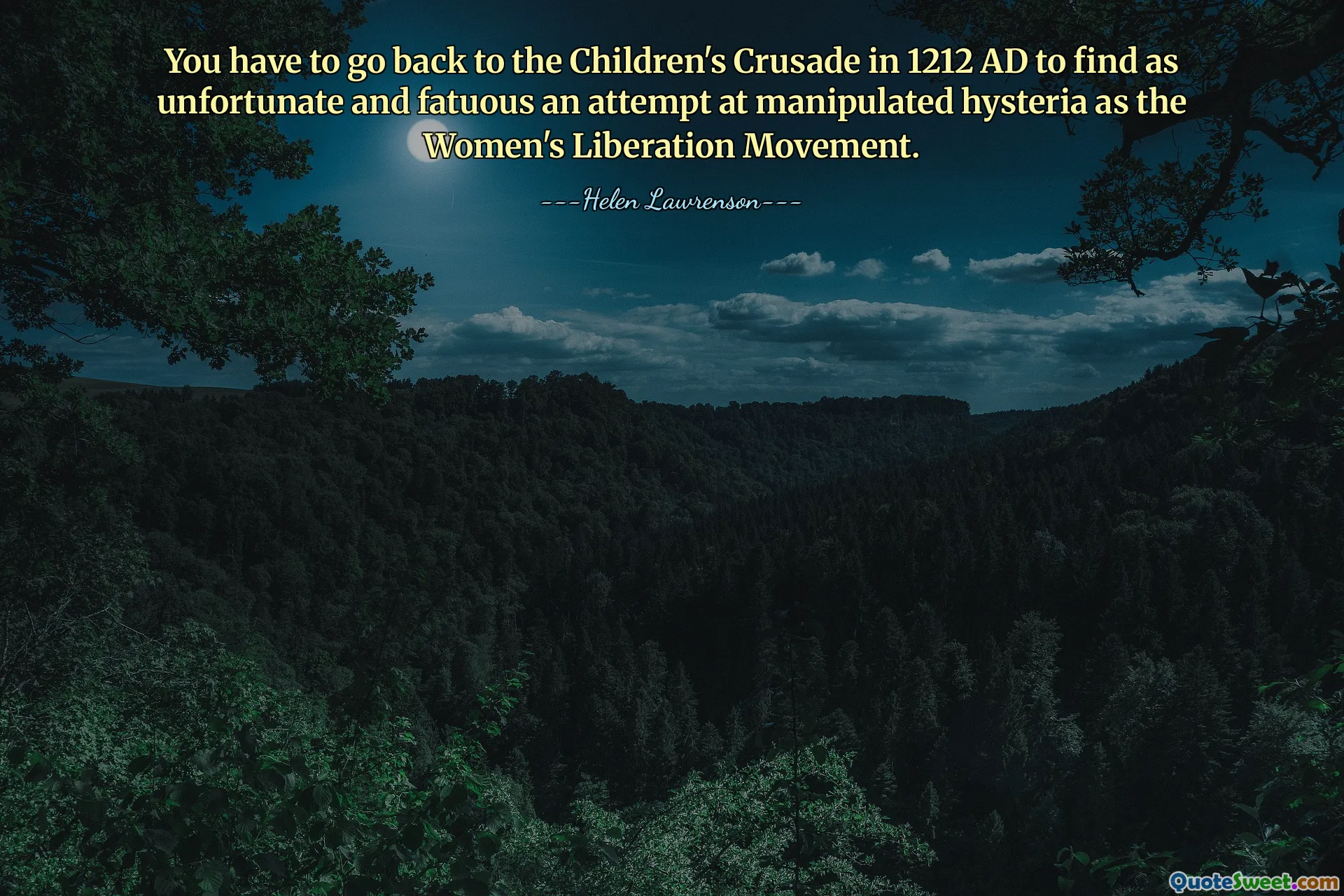
You have to go back to the Children's Crusade in 1212 AD to find as unfortunate and fatuous an attempt at manipulated hysteria as the Women's Liberation Movement.
This quote presents a provocative comparison between the Children's Crusade of 1212 and the Women's Liberation Movement, suggesting that both instances are characterized by misguided enthusiasm and manipulated emotions. The Children's Crusade was a tragic event marked by naïveté and a kind of collective hysteria fueled by idealism and perhaps exploitation, resulting in suffering and disillusionment among the young participants. By likening the movement to such a historical episode, the quote questions the legitimacy and wisdom of the advocacy and revolutionary fervor in the women's rights movement of the 20th century.
From a historical perspective, equating a young, impulsive crusade with a well-organized social movement might seem exaggerated. Nonetheless, it raises important considerations about the dynamics of social change—particularly the influence of groupthink, emotional manipulation, and external agendas that can sometimes distort genuine progress. The Women's Liberation Movement, which sought equality and systemic change, faced opposition, internal conflicts, and sometimes controversial strategies. Critics who share this viewpoint might argue that parts of the movement were driven by hysteria or uncritical enthusiasm. Conversely, supporters would contend that such movements challenge entrenched societal norms and require a certain degree of emotional investment and heroism.
This quote invites us to reflect on the power of collective emotion in shaping history and societal transformation. Do movements driven by fervor necessarily lack legitimacy, or can they serve as catalysts for necessary change despite their imperfections? Moreover, it prompts us to consider how history judges enthusiasm and activism—sometimes dismissively, other times with admiration. Recognizing these questions is essential in understanding how social narratives are constructed and how they influence perceptions of progress.
Ultimately, the quote pushes us to critically evaluate the motivations behind social movements and to acknowledge the complex interplay between sincere activism and emotional manipulation, regardless of the era or cause.











